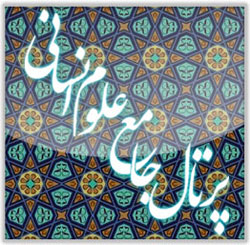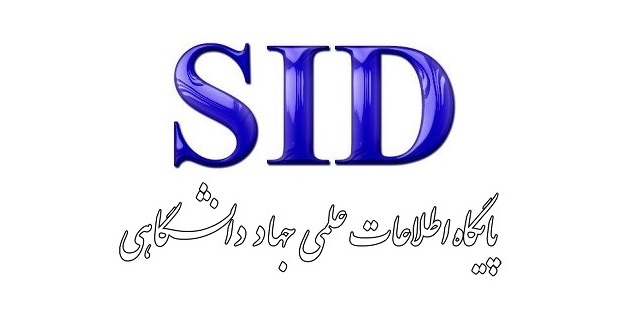When the World Enters the City: Reinterpreting Cultural Globalization Through the Lens of Urban Sociology
Keywords:
globalization, culture, urban sociology, creative industries, urban identityAbstract
The process of cultural globalization, as one of the key features of contemporary transformations, plays a crucial role in redefining cultural boundaries, collective identities, and social relations in urban spaces. This article, drawing upon the theoretical perspectives of scholars such as Giddens, Robertson, Appadurai, Tomlinson, and others, examines how cultural globalization influences the city and urban life through the lens of urban sociology. In addition to reviewing theoretical foundations and previous studies, the article explains the cultural opportunities and challenges that arise from globalization in urban contexts and analyzes its consequences at identity, social, economic, and spatial levels. The aim of this research is to explore the theoretical and practical dimensions of cultural globalization in the urban fabric. The main focus is on identifying the cultural opportunities and challenges of this process in cities and examining its impact on identity, lifestyle, social structure, and spatial dynamics in the context of globalization. This study attempts to offer a comprehensive understanding of the relationship between globalization and urban culture by integrating theoretical perspectives and empirical evidence. The research method is applied–developmental in terms of purpose and descriptive–analytical in terms of data collection, with the analytical section being exploratory in nature and conducted through the use of library sources and academic documents. The study also employs a qualitative method with an analytical–interpretive approach. Data have been collected through a systematic review of theoretical texts, previous studies, and content analysis of the works of key theorists in the field of cultural globalization. Moreover, in order to enrich the discussion, case analyses of examples of global cultural manifestations in cities are utilized to link the theoretical dimensions of the article with empirical evidence. This methodological combination enables a more comprehensive analysis of the processes and consequences of cultural globalization in urban spaces. The findings of the study indicate that, from the perspective of urban sociology, the impacts of cultural globalization processes in the context of cities can be summarized into three key themes: “the city as a field of tension and cultural re-articulation,” “the cultural agency of citizens in the face of globalization,” and “the necessity of rethinking urban policy-making.” According to these findings, just as globalization, in the absence of social and institutional preparedness, may lead to cultural ruptures, identity crises, and increased urban inequalities, it can also result in the expansion of cultural exchange, the flourishing of creative industries, and the reinforcement of local identities. Consequently, urban policy-making plays a pivotal role in navigating these outcomes.
Downloads
References
1. Magu S. Reconceptualizing Cultural Globalization: Connecting the “Cultural Global” and the “Cultural Local”. Social Sciences. 2015;4.
2. Raikhan S, Moldakhmet M, Ryskeldy M, Alua M. The interaction of globalization and culture in the modern world. Procedia - Social and Behavioral Sciences. 2013;122:8-12.
3. Current World Population. 2024.
4. Grazia VD. Irresistible Empire: America's Advance through Twentieth-Century Europe: Harvard University Press; 2012.
5. Sassen S. The Global City: New York, London, Tokyo. 2nd ed: Princeton University Press; 2001.
6. Sassen S. Global cities and territorial states: Towards a new bipolarity? International Political Science Review. 2002;23(1):5-24.
7. Ahmad Nia H, editor Globalization and the Challenge of Urban Identity. 6th International Conference of Contemporary Affairs in Architecture and Urbanism (ICCAUA-2023); 2023.
8. Massey D. World City: Polity Press; 2007.
9. Tomlinson J. Globalization and culture: University of Chicago Press; 1999.
10. Featherstone M. Undoing Culture: Globalization, Postmodernism and identity: Sage Publications; 1995.
11. Nederveen Pieterse J. Globalization and Culture: Global mélange: Rowman & Littlefield; 2004.
12. Worsley P. Knowledges: Culture, Counterculture, Subculture: The New Press; W. W. Norton; 1999.
13. Kliksberg B. Sochail Capital and Development: A Critical Analysis: Inter-American Development Bank; 1999.
14. Appadurai A. Modernity at Large: Cultural Dimensions of Globalization. Minneapolis: University of Minnesota Press; 1996.
15. Zukin S. Naked city: The death and life of authentic urban places: Oxford University Press; 2010.
16. Florida R. The New Urban Crisis: How Our Cities Are Increasing Inequality, Deepening Segregation and Failing the Middle Class and What We Can Do About It: Basic Books; 2017.
17. Castells M. The Rise of the Network Society. 2nd ed: Wiley-Blackwell; 2000.
18. Castells M. The new Latin America: A radical view of the region: Wiley-Blackwell; 2020.
19. Harvey D. The condition of postmodernity: An enquiry into the origins of cultural change: Blackwell; 1989.
20. Zukin S. The Culture of Cities: Blackwell; 1995.
21. Ezeudu TS. The impact of Cultural Globalization on Sustainable Urban Development in Nigeria. Journal of Public Administration and Government. 2024:16-34.
22. Fung J. Globalizing the sociology of the arts and culture: East Asian perspectives. The Journal of Chinese Sociology. 2023.
23. Giddens A. The Consequences of Modernity: Stanford University Press; 1990.
24. Albrow M. Globalization, Knowledge and Society. London: Sage Publications; 1990.
25. Held D, McGrew A, Goldblatt D, Perraton J. Global Transformations: Politics, Economics and Culture: Polity Press; 1999.
26. Robertson R. Globalization: Social Theory and Global Culture. London: Sage Publications; 1992.
27. Bauman Z. Globalization: The Human Consequences: Columbia University Press; 1998.
28. Chung H. Cultural Globalization: Challenges and Responses. The Korean Journal of Policy Studies. 2005.
29. Held D, McGrew A. Globalization Theory: Approaches and Controversies2007.
30. Throsby D. The Economics of Cultural policy2010.
31. Sen A. Development as Freedom1999.
32. Ritzer G. Globalization: A critical introduction. 2nd ed: Sage Publications; 2011.
33. Said EW. Orientalism: Pantheon Books; 1978.
34. Crystal D. Language death: Cambridge University Press; 2000.
35. Hesmondhalgh D. The Cultural industries. 3rd ed: Sage Publications; 2013.
36. Thompson JB. The media and modernity: A social theory of the media: Polity Press; 1995.
37. Baudrillard J. The consumer society: Myths and structures: Sage Publications; 1998.
38. Erikson EH. Identity: Youth and crisis: Norton & Company; 1968.
39. Ogunbameru OA, Adisa AL, Adekeye DS. Gross- Cultural Management: A Multi Disciplinary Approach. Ile-Ife, Nigeria: Obafemi Awolowo University Press; 2018.
40. Inglehart R. Modernization and Post modernization: Cultural, Economic, and political change in 43 societies: Princeton University Press; 1997.
41. Inglehart R, Welzel C. Mordernization, Cultural change and Democracy: The human development sequence: Cambridge University Press; 2005.
42. Yang G. The Internet and the rise of a transnational Chinese cultural sphere. Media, Culture & Society. 2003;25(4):469-90.
43. Bourdieu P. Distinction: A social critique of the judgement of taste: Harvard University Press; 1984.
44. Lefebvre H. The Production of Space: Blackwell; 1991.
45. Florida R. The rise of Creative Class: Revisited: Basic Books; 2019.
46. Bayat A. Life as politics: How ordinary people change the Middle East. 2nd ed: Stanford University Press; 2013.
47. Khiabani G. Iranian Media: The paradox of modernity: Routledge; 2007.
48. Khosravi S. Precarious lives: Wating and hope in Iran: University of Pennsylvania Press; 2017.
49. Sreberny-Mohammadi A, Mohammadi A. Small media, big revolution: Communication, Culture, and the Iranian revolution: University of Minnesota Press; 1994.
Downloads
Published
Submitted
Revised
Accepted
Issue
Section
License
Copyright (c) 2024 Zohreh Roghanian; Fatemeh Moradi (Author)

This work is licensed under a Creative Commons Attribution-NonCommercial 4.0 International License.










